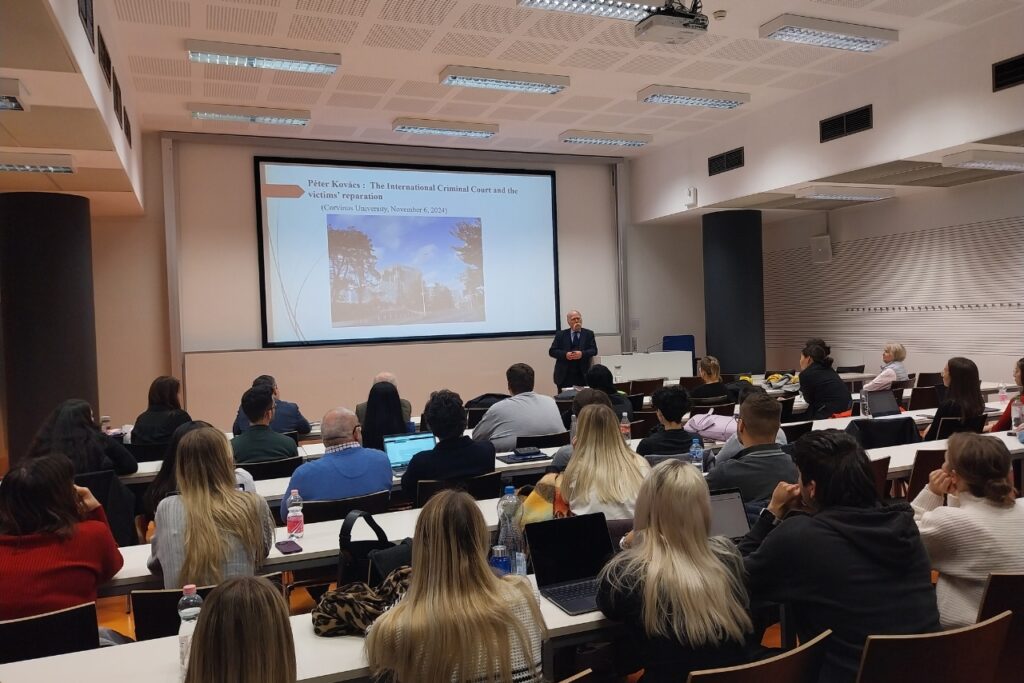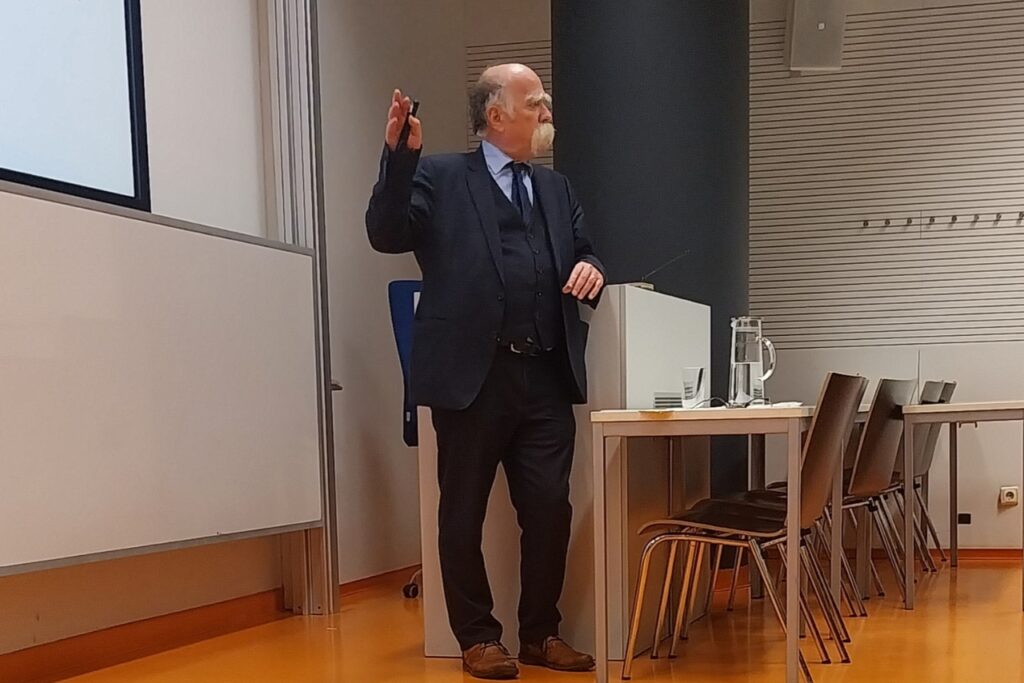The role of the International Criminal Court in punishing war criminals and providing remedies for victims
6 November 2024 | 17:30-19:00 | Budapesti Corvinus Egyetem | C.VII

Judge Péter Kovács (International Criminal Court) held a lecture at Corvinus on the role and achievements of the International Criminal Court in the field of international criminal justice with a particular focus on reparations for victims.
In light of current armed conflicts and their tragic impact, such as mass civilian casualties in Ukraine or in the Middle East, we easily set high expectations for the ICC to efficiently repress international crimes. However, obstacles of jurisdiction or real politics can stand in the way of international criminal justice.
The lecture provided a unique opportunity to gain insights into the challenges the ICC faces from the authentic perspective of Judge Péter Kovács. He guided the audience on the particular issue of victims’ status and participation in the court proceedings. Victim participation has been celebrated for a long time as a chance to empower victims to share their experiences. However, it has been also subjected to criticism regarding retraumatization, enhancing punitive cultures and potentially clashing with the defendant’s right to a fair trial. Meanwhile, the ICC invests significant capacities into reparation programs, and outreach to local victim communities, collecting their stories, and informing them about judicial developments.

The lecture and Q&A also provided an opportunity to ask Judge Kovács about his professional career and his individual reflection on the Court’s decisions.
Judge Kovács has served as a judge at the International Criminal Court since 2015.
He began his academic career as a lecturer at the University of Miskolc then as head of the Department of International Law in Miskolc and Budapest, at the Péter Pázmány Catholic University. He is a PhD, dr. habil, and D.Sc. He served as a diplomat at the Hungarian Embassy in Paris between 1990-1994 and was head of the Department of Human Rights and Minority Law at the Ministry of Foreign Affairs in 1998-1999. As a governmental expert, he participated in the drafting of the European Charter of Regional or Minority Languages and the Framework Convention for the Protection of National Minorities, both elaborated under the auspices of the Council of Europe. Between 2005-2014, he was a judge of the Hungarian Constitutional Court. He is the author of international law manuals, books, and articles on minority protection, human rights, international humanitarian law, and comparative international jurisprudence.
The event was organized by the Department of International Relations, Institute of Global Studies in cooperation with the Hungarian Branch of the International Law Association.